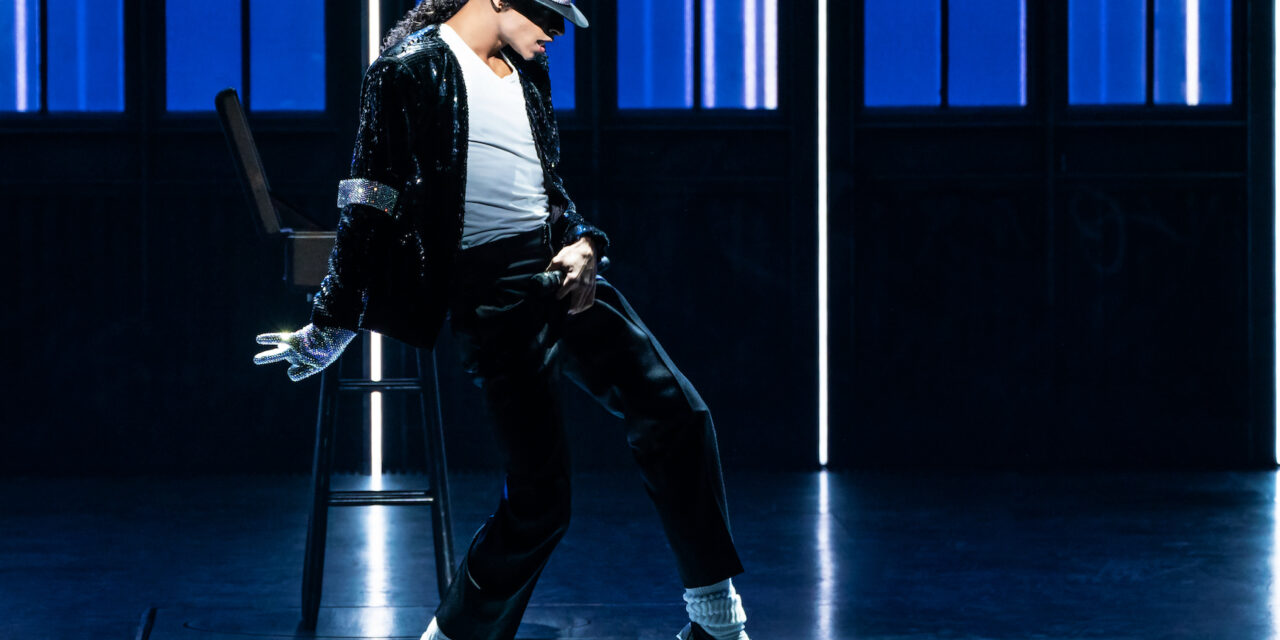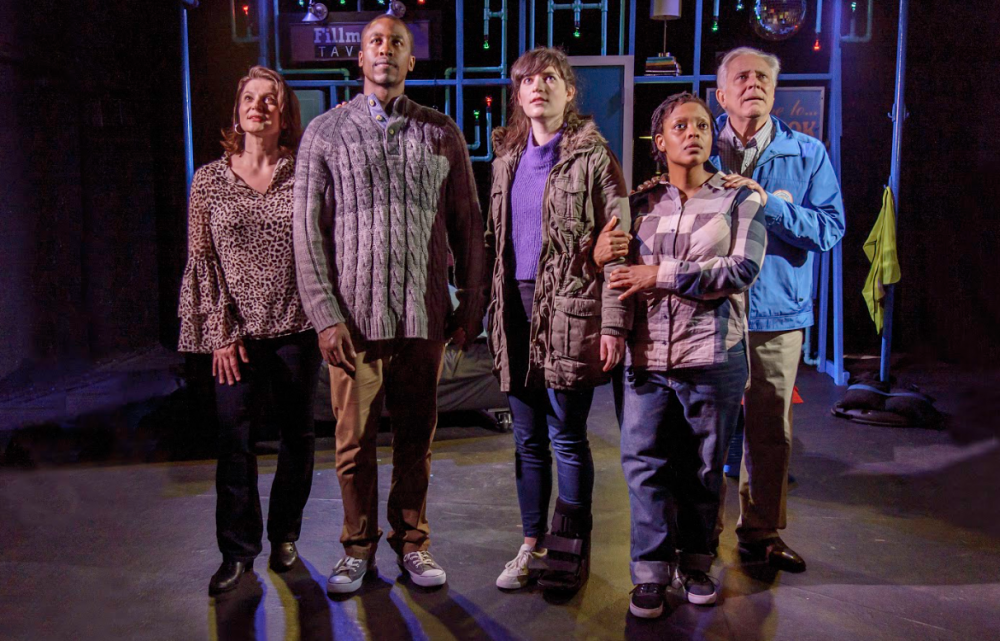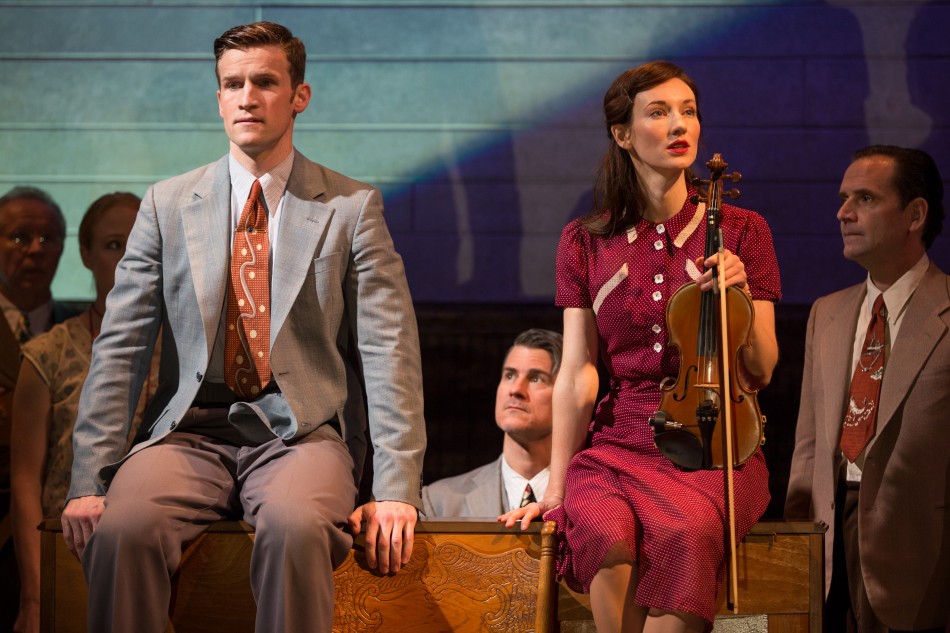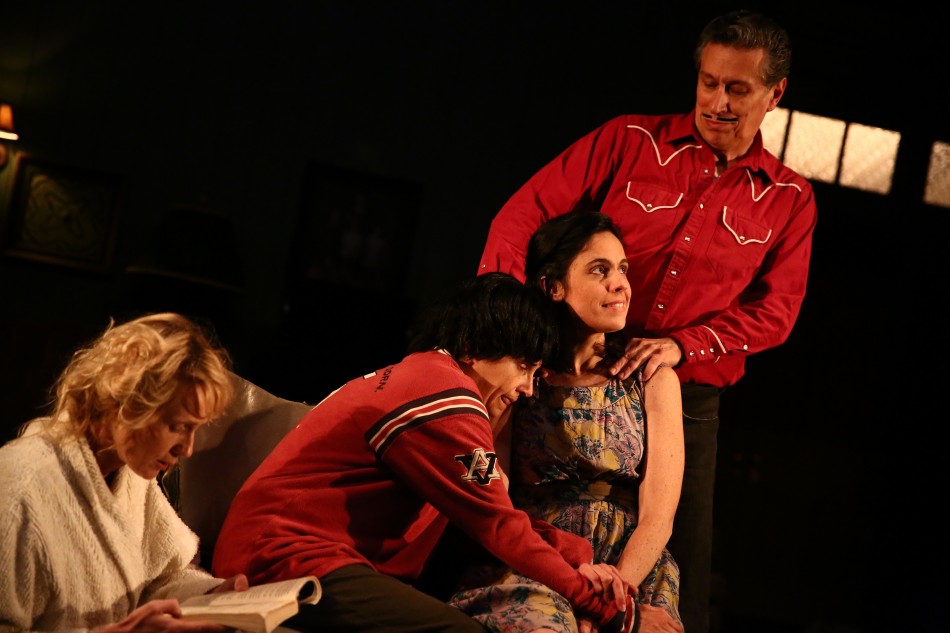By Cooper Lawrence . . .
At first glance, it’s perplexing why Lynn Nottage (Book) and Christopher Wheeldon (Director/Choreographer) would want to celebrate a deeply flawed icon like Michael Jackson. Through a 2022 cancel culture lens, with current celebrities, musicians and other entertainers dropping like flies to the whims of the mob for both actual and perceived social crimes, is it possible to honor the music and legacy of a star accused of substantive and multiple sexual assault allegations?
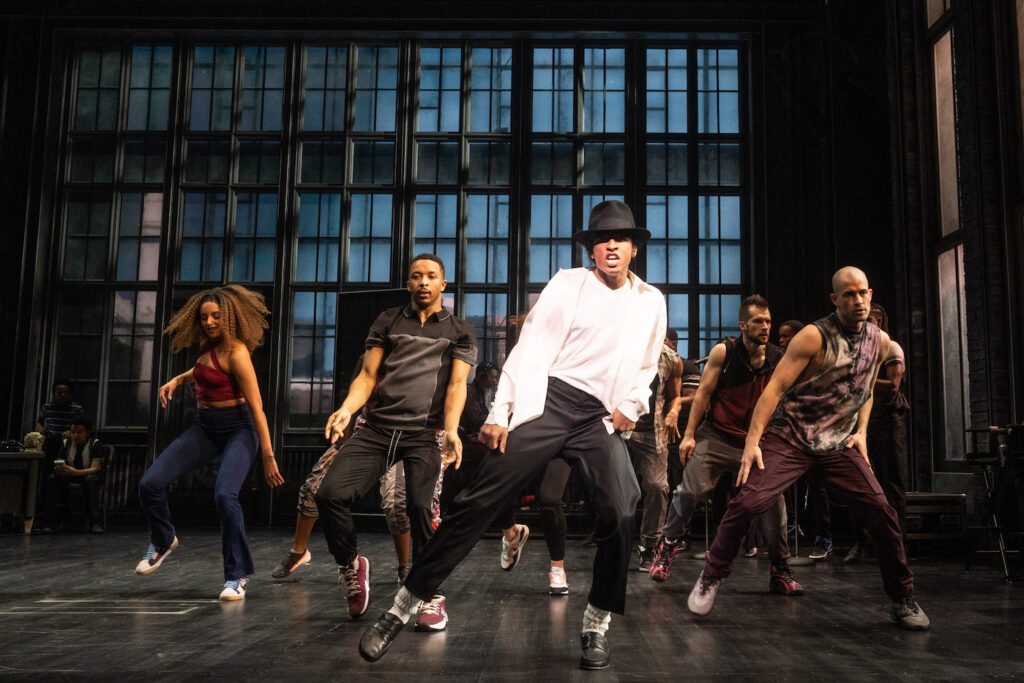
With MJ, the Michael Jackson musical, the answer appears to be “sort of” . . . . as long as the script alludes to the case but doesn’t actually go there. After all, it is a musical, a jukebox musical, where we’re expected to subvert harsh reality in place of rainbows, puppies, and unicorns. But Nottage seems to feel the same way; or maybe she has designed it so it appears that she has. So, when we hear the word “allegations” from an aggressive reporter during a press conference scene in the first act, our ears prick up . . . only to find that the trigger word is referring to his 1987 scandals (the hyperbaric chamber or his purchase of the Elephant Man’s bones) and not the situation we’re all thinking about. Perhaps she is nudging us just a little to let us know that she too holds these thoughts; but, as long as the narrative keeps to its laser focus on the art and on Jackson’s music, it’ll all be ok. It suddenly becomes clear that some public figures are just too big to cancel. After all, haven’t we learned that cutting problematic people out of pop culture does not erase their crimes, real or imagined? The other challenge for Nottage, one would imagine, appears to be finding new things to say about a worldwide figure who has loomed so large and been examined from every possible angle for decades, all while trying to convince fence-sitters that it’s ok to enjoy the music without abandoning empathy for Jackson’s alleged victims.
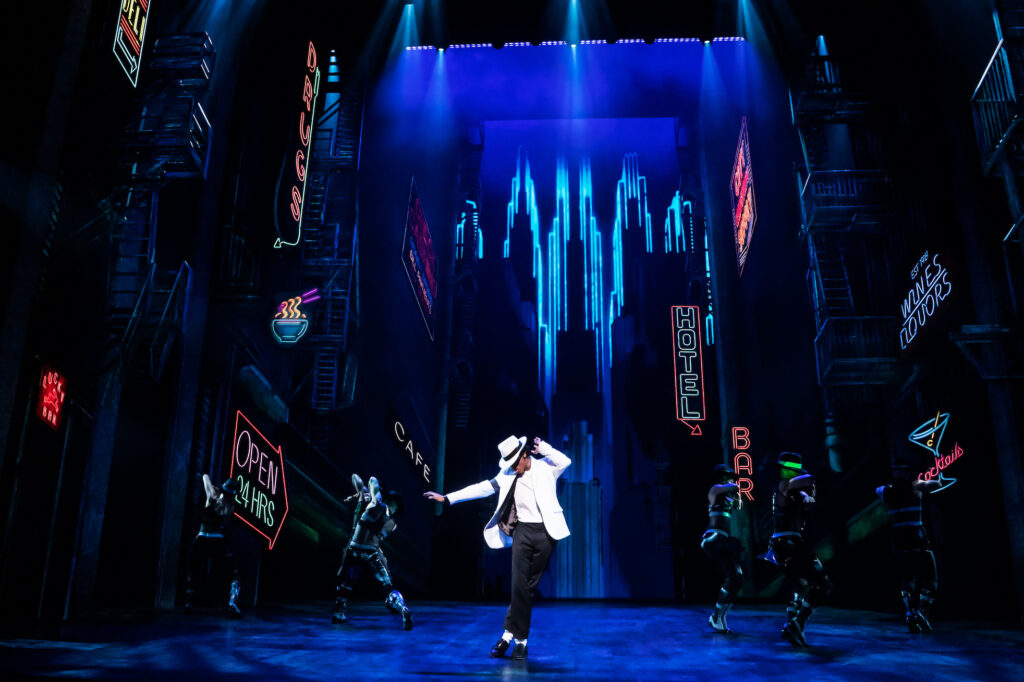

Despite this being on the minds of many audience members, these issues are never addressed directly, merely alluded to. Like when Jackson’s business manager, Dave (Joey Sorge, perfectly portraying the exasperated opposition to Jackson’s excesses), acknowledges the families Michael supports in order to spend time with their sons at his Neverland Ranch or take as his special guests on tour with him, “Your overhead at the Neverland ranch is two million dollars a month. You’re paying phone bills for 500 people!” Jackson’s route to favoritism was through his wallet.
The story is structured around a specific time in Jackson’s life. It’s 1992, and we meander through the breadth of Jackson’s accomplishments and seminal high points (e.g. his Thriller moment; Grammy wins, the spotlight at Studio 54). The action mainly takes place at a spacious, high-ceilinged art-deco rehearsal studio as he prepares for the Dangerous World Tour. This magnificent set is the first of many stunning and disparate designs by multiple Tony-award winner Derek McLane (Moulin Rouge) with luxurious lighting by Natasha Katz.
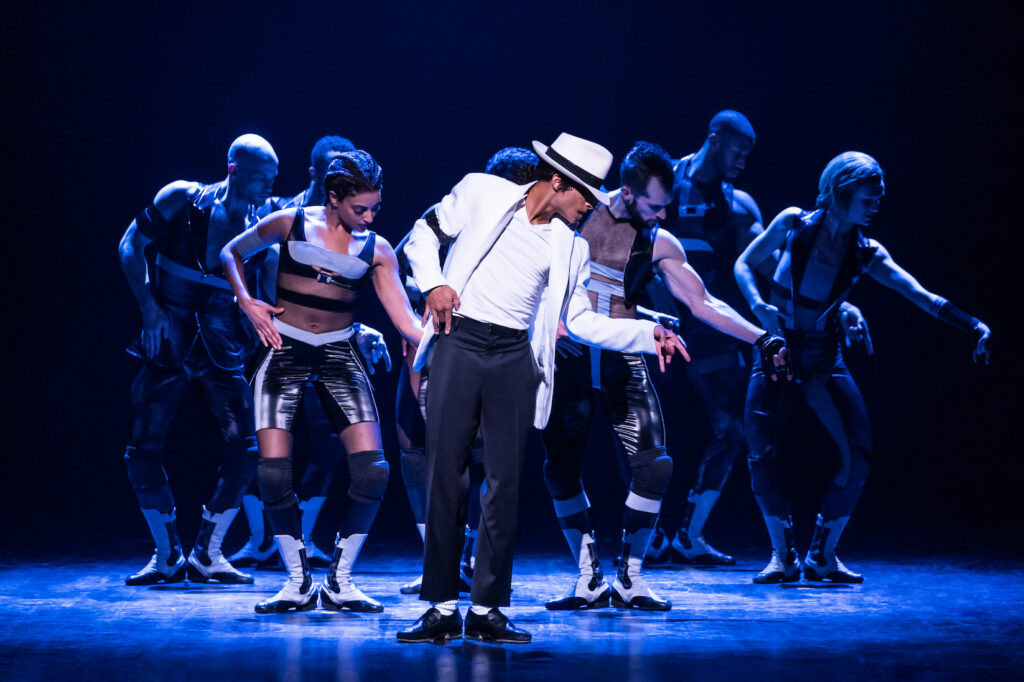

From there the story slips backward and forward in time as we visit young Micahel growing up as he and his brothers, The Jackson Five, jump from seedy nightclubs to concert halls to television studios in a meteoric rise to fame under the watchful eye and heavy hand of their notoriously bullying father, Joseph Jackson (played with stunning aplomb by Quentin Earl Darington who doubles as Rob, the even-keeled tour manager). The music is, of course, the real star of the show with over two dozen songs that feel both like a warm hug from an old friend (“I’ll be there with a love that’s strong I’ll be your strength I’ll keep holdin’ on”) but also like the most awkward cringy moment you spend with a wildly tone-deaf and bigoted uncle (“Jew me, sue me, Everybody, do me, Kick me, kike me, Don’t you black or white me.”).
Meanwhile, the real story of MJ is a man in his early 30s dealing with a severe identity crisis. And the show’s real star is Michael, Michael, and Michael, as it always was, but in this case it’s because of the three stellar young actors who play Michael in different ages. Little Michael, played by Christian Wilson (in the production I saw—but because of his age, the role alternates with Walter Russell III) was an absolute doppelganger for the original in beautiful voice and look, nailing every single Jackson Five hit as if we were watching the real thing in real time. His duet (shared with older Michael) with mother Katherine, played by Broadway first-timer Ayana George who sings so perfectly and crisply she should be given her own show, is a touching tear-jerker worth the price of admission alone.
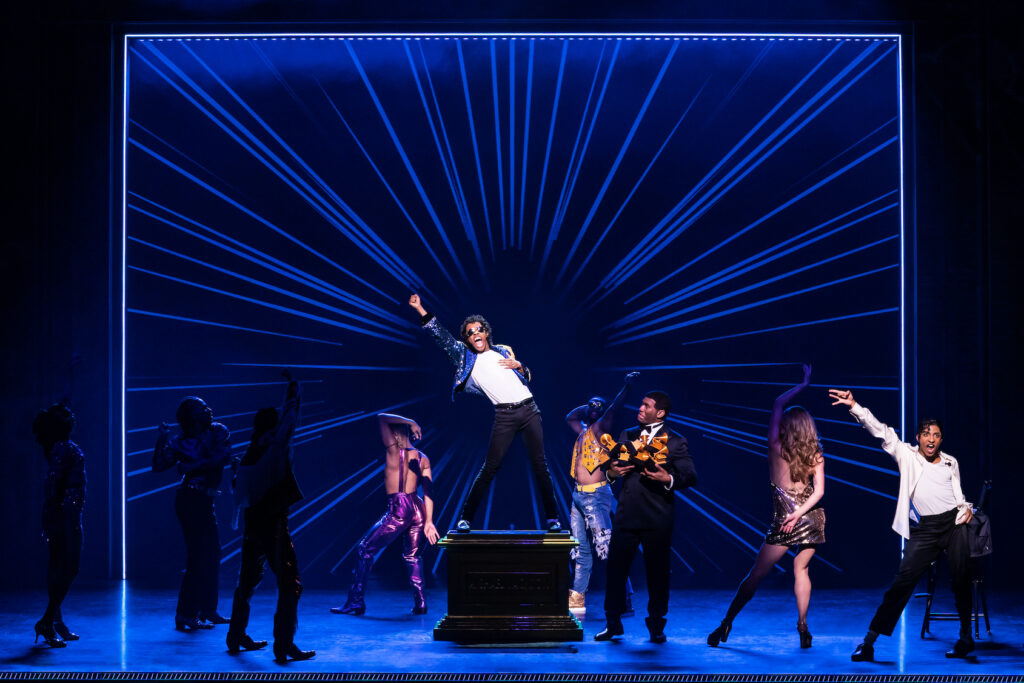

Somewhat surprisingly, the other two Michaels were equally impressive. Tavon Olds-Sample as the late 70s early 80s Motown Michael and Thriller Michael had the look, feel and dance moves (vitally important because movement was one of his hallmarks, having invented both the Robot and the Moon Walk, staples of the discos of the era). Watching him accept his tray of Grammys in his sparkling suit seemed as authentic as it gets.
But the most remarkable performance came from Myles Frost, yet another absolute newcomer. Where did they find him?! Not only had the DC native never graced a Broadway stage, he’d never even performed in New York, yet he was as smooth as the most seasoned veteran. His mimicry of Jackson’s dance steps, speaking voice, singing voice, mannerisms and attitude made his not exact resemblance utterly irrelevant. He, too, felt like mid-90s Michael, including the unsettling immaturity and childish game-playing, as well as the reckless spendthriftiness. As his story and life start to unravel, we palpably feel his fears and doubts of legacy and what people will think about him in years to come. His perfectionism (ostensibly beaten into him by his father) drove his attitudes toward production and performance as evidenced by the strength of the music to this day.
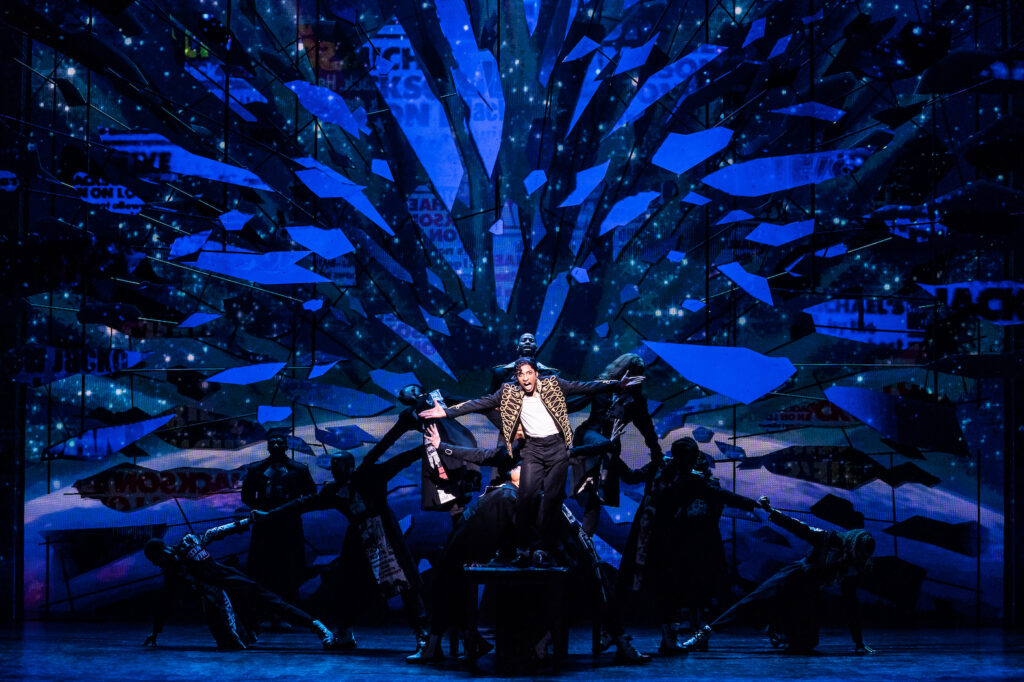

Taken into account that this jukebox musical is a celebration of one of the most important and recognizable pop stars in the history of music, one wonders why his name is hidden behind the play title, MJ. Is it because producers wanted to deflect attention from this controversial character and allow the story to focus on a small, relatively mild chapter in his life? Perhaps. MJ opens with the ripping and riveting Beat It, setting the electrifying stage for what a show of this magnitude should be. We are reminded at the start of the second half with a searing performance of Billie Jean, a song about some of the pitfalls of fame, forcefully opens the second half of the show quickly reminding us why Rolling Stone placed both songs on their list of the greatest songs of all time. It’s as Quincy Jones says to a young(ish) Michael: “You let the song lead.”
MJ. Open run. At the Neil Simon Theatre (250 West 52nd Street, between Broadway and Eighth Avenue). Two hours 30 minutes with one intermission. www.mjthemusical.com
Photos: Matthew Murphy


